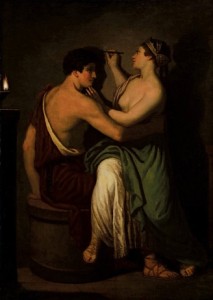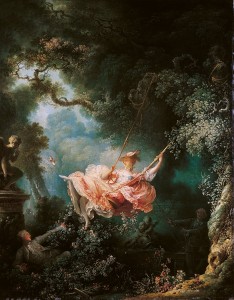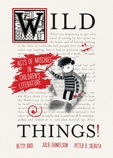Read the News on this fun show at Black Mountain’s BEST museum! My 15 original illustrations for “Step Back in Time: A Walking Tour of Black Mountain” done in sepia ink and watercolor. 
by Jerry Pope
by Jerry Pope
A successful independent writer/illustrator
If you’re under – say – fifty, you know how the music world is in a maelstrom of change. Not new news; independent labels have always been around, but the emergence of artists who not only write and record their own material (Beatles) but record, produce, and distribute it themselves (Radiohead) is a burgeoning phenomenon that has tipped, if not turned over, the music industry.
There are more bands in more genres than ever. If you love grunge-polka or acapella heavy metal, your bands are out there. Programs like Garage Band have thoroughly democratized at least the recording end of the business. Big music corporations still have the lion’s share of sales, and can now wait, like lions, for an indie band to blow up BEFORE signing them to their label. But this is changing. Check out David Byrne’s article on Music Biz.
And the same sea-change is taking place in the book world. Vanity presses have given way to self-publishing. Amazon.com, the world’s biggest everything, has a print-on-demand (POD) division that directly links to their sales and Kindle divisions. And there are a multitude of other POD companies.
Like music, the number of books available has exploded. All kinds of books with all kinds of niches; how-to make mud, porn memoir, troll romance, fantasy, and children’s books without end. Amazon’s CreateSpace, lists over 400,000 self-published books!
Of course, the big publishing houses (of which there are fewer every year) do the same as the big music labels (ditto) – while promoting their usual stable of stars, they’ll let the indies do their own development and pick them up when the indies don’t really need them any more.
But being published by one of the dinosaurs brings the Caché of Arrival, Acceptance, Approval, and Welcome ( or CAAAW!). You don’t get reviewed, “best sellered” or allowed to put that sticker on your cover unless HarperCollins, Penguin, or Simon and Schuster bring you into their fold.
For me, as a prolific, impatient, elder writer/illustrator, self-publishing is the way to go. I tried the Writer’s Digest approach years ago; had some nibbles, but found it was personal contact that sold books, whether one-on-one or to bookstores. When it comes to marketing, you are your own best salesman. Sorry, but true. The bigger rock, or the more little rocks you throw in the pond, the bigger the waves that spread out. There are 7.6 billion people in the world. 1/1000th percent of that is 76 thousand people. Do you think one in a hundred thousand people will love what you do? I do.
So get started.
by Jerry Pope
I recently realized I have been working on “Owl Girl,” my latest graphic novel, for 9 months. And I feel like there’s still a month to go. I’m feeling what a lot of preggers ladies feel – now is the best time of our whole life together. It’s just you and me, babe; all inward, insular, cuddly, and warm. Soon, though, you’ll be out in the world, with all its demands, mean kids, judgments, hard won successes and easy disappointments.
This really is my favorite time in the life of an artist – drawing away in the studio, scratching out, filling in, laughing at our mistakes and miraculous breakthroughs. It’s not that I mind the technical stuff that’s coming; publishing, marketing, selling. Just as I don’t mind driving you to your friends for a playdate, replacing perfectly good clothes that you’ve outgrown, or getting up at 3 AM to get you out of jail. I don’t mind it, I just don’t enjoy it as much as I enjoy now.
But it’s inevitable, little book. Your fate awaits you in the big, cold, world. I can only hope the world loves you as much as I do.
DISCLAIMER: Yes, I KNOW having a baby is probably more difficult than making a book. I mean, I have watched every episode of “Call the Midwife.” So, please don’t call me out on this one. Thank you.
by Jerry Pope
by Jerry Pope
by Jerry Pope
if there is a heaven I declare
everybody gets to go
although it may not be
all singing, all dancing
murderers will meet their victims there
those who have been waiting for them
and not, I think, just the face to face
murderers of passion or
those with diseased minds
who killed innocent strangers
but the presidents and kings
who ordered murder from
their soft palaces
the murdered will line up and
patiently wait their turns
(they have the time)
in the cases of Hitler and Stalin,
Truman and Caesar,
Queen Victoria and Genghis Khan,
George Bush, and other mass killers
the lines will be quite long
and each murdered one will
tell their life
and the life they didn’t have
but wanted
and the murderer must listen
and ask questions and
answer them
and discuss it until the murdered
one is satisfied
and every story will break their heart
as only a heart in heaven can break
over and over,
until the murdered dead are satisfied, every one
and the murderer will then stand
alone with his heart
full of pain
as only a heart in heaven can be
and know.
Jerald Pope
by Jerry Pope
I cannot stack wood without taking into consideration the aesthetic elements of the stacking. Colors, sizes, textures; all go into deciding where to place the next log. I do not do this by choice – I cannot not do it. The same goes with loading the dishwasher, mowing the grass, hanging laundry, or putting food on a plate. Having trained my mind to identify interesting patterns on paper or canvas, I identify them everywhere, whether I would or not.
When I look at trees or crowds or clouds, I think about lines and colors. (“Ah, some Payne’s Gray mixed with a touch of Ultramarine Blue and about 95% Titanium White would do it.”) The thing is, this is a tiring way of seeing the world. My counter-inner dialogue is often, “stop it, it doesn’t matter. Just stack the damn wood.” But no, I’ll move a log because it looks better over here.
Now this is not one of those faux-rants where some movie actor is bitching about having to be up early to make his movie. First, I don’t make movies. Or movie money. Second, like movies for the actor, this is a world view I have chosen, and I love it. I imagine other people see the world similarly: doctor’s note disease in passing faces, cooks break down food into recipes, salesmen read your body language. Only, sometimes, I wish my critical eye would just give it a rest. I can judge the aesthetics of the wood-pile in the winter when I’m burning the wood. And I’m sure I will.
by Jerry Pope
 This romantic, slightly saucy depiction of a Greek maid tracing her departing lover’s silhouette portrays the supposed beginnings of portrait painting. Or portrait tracing, in this case. The Scottish painter David Allan did several versions of this around 1775. The multiple versions imply popularity- it went Georgian-viral. Two things are notable; the self-referential aspect (a painter painting a painting about painting) and the risqué nature of the artist lass losing her clothes. Before mass reproduction, titilating art had to be handmade, and fine artists were more than happy to fill that need. Of course, before museums, this meant that only “gentlemen” could afford this indulgence. Think Goya’s Maja Desnuda (here with the clothed version. “Maja” means something like “Chick” or “Valley Girl”). The clothed version was probably hung in the drawing room, with the Desuda in a more private smoking room; entrance by invitation only.
This romantic, slightly saucy depiction of a Greek maid tracing her departing lover’s silhouette portrays the supposed beginnings of portrait painting. Or portrait tracing, in this case. The Scottish painter David Allan did several versions of this around 1775. The multiple versions imply popularity- it went Georgian-viral. Two things are notable; the self-referential aspect (a painter painting a painting about painting) and the risqué nature of the artist lass losing her clothes. Before mass reproduction, titilating art had to be handmade, and fine artists were more than happy to fill that need. Of course, before museums, this meant that only “gentlemen” could afford this indulgence. Think Goya’s Maja Desnuda (here with the clothed version. “Maja” means something like “Chick” or “Valley Girl”). The clothed version was probably hung in the drawing room, with the Desuda in a more private smoking room; entrance by invitation only.
Also Fragonard’s “Girl on a Swing” (note the men lurking strategically in the weeds)
 Tame by today’s gynecological standards, but hot stuff in the good old days, when “a glimpse of stocking…” etc.
Tame by today’s gynecological standards, but hot stuff in the good old days, when “a glimpse of stocking…” etc.
Interestingly, the women in both of these famous paintings are drawn anatomically wrong. The desnuda’s waist is too long and her boobs are just weird. The girl on the swing has a knee too far from where her pelvis would be. But, hey, we ain’t here for the criticism!
Speaking of the self-referential in art, nothing says it better than Escher’s closed-system drawing : Nice cufflinks!
Nice cufflinks!
by Jerry Pope
 Do you know the 18th century brother and sister writing duo whose classic is still in print despite her murdering their mother?* How about the Unitarian minister, defrocked for molesting boys in his parish, who went on to pen a smash series of books about boys who are guided to wealth and respectability by caring older gentlemen?** I just finished reading Wild Things:Acts of Mischief in Children’s Literature by Betsy Bird, Julie Danielson, and Peter Sieruta where you’ll find these steamy tidbits as well as hundreds more, funny, amazing, and outrageous.
Do you know the 18th century brother and sister writing duo whose classic is still in print despite her murdering their mother?* How about the Unitarian minister, defrocked for molesting boys in his parish, who went on to pen a smash series of books about boys who are guided to wealth and respectability by caring older gentlemen?** I just finished reading Wild Things:Acts of Mischief in Children’s Literature by Betsy Bird, Julie Danielson, and Peter Sieruta where you’ll find these steamy tidbits as well as hundreds more, funny, amazing, and outrageous.
Wild Things reminds us that, for all the “fuzzy bunny” world we imagine and want children’s books to be, they are written, illustrated, sold, and reviewed by adults, with all their normal, adult human foibles. When the reality smacks up against the fantasy, some are rewarded, some slapped on the wrist, some ruined, and some ignored.
Where did Max come from? What’s wrong with celebrities writing picture books ( particularly you, Madonna)? What are some of the delicious hidden “messages” in some popular books? How did Harry Potter hit so big ( and what did the series earn for J.K. Rowling)? How did the 60’s change children’s lit?
If these and similar questions make your curiosity antennae start twitching, you are the reader this book has in mind.
* Charles and Mary Lamb Tales From Shakespeare
** Horatio Alger
by Jerry Pope
 Like a fine wine and a good cheese, may I recommend an interesting movie/book pairing?
Like a fine wine and a good cheese, may I recommend an interesting movie/book pairing?
“Mr Turner”, a biopic about the English painter J.M.W. Turner, is a beauty from start to finish. (You know Turner from the ravishing use of color in his proto-Impressionist seascapes). 
Mike Leigh, the director, shows how the art of film can dance with the art of painting when in the hands of a master. Timothy Spall gives a hilarious and sympathetic portrait of Turner as a grunting, driven sort of Victorian pigman who touches heaven with his brush ( also his finger, his tongue, and his sleeve).
The cast is consistently brilliant in that best-of-British acting way. The Brits tear up Costume Drama, especially if it is celebrating their lost glories. One actress deserves particular mention; Dorothy Atkinson, as Turner’s maid, Hannah Danby. She probably speaks ten words in the whole movie, but her face and body language will break your heart evens it delights it with her bravura skill. If the Academy Awards meant anything, this tour-de-force would have been at least on the short list.
Coincidentally, I just finished reading “The Victorian City: Everyday Life in Dickens’ London” by Judith Flanders. Without the filter of Dickens’ art, London at the time of Turner comes through as a thin and brittle marzipan house sitting on a mountain of human desperation and waste. And, though “literally” has become a misused cliché (thanks, I think, to Rob Lowe’s masterly abuse of it in “Parks and Recreation“), the mountain of waste is literal.
Without running water or sewers, people in London, a city of 2 million, usually emptied their chamber pots in the basement. Occasionally the rich and middle-class would have men bucket the muck out – the poor never did. For horrid example, a tenement of 800 had one privy. Blood from the animals brought into the city for slaughter ran into streams and then the River Thames, as did all industrial runoff. Add to this the manure from the horses that were the primary means of transportation and the Thames was, literally, a river of shit. It took the The Great Stink of the summer of 1858, which (yes, literally) drove the government, retching, from the halls of Parliament to make sewers an idea whose time had finally come. Prince Albert, he of the can, died of cholera from drinking the feces laden water.
The treatment of the legions of the Poor, of women, and children do not paint the aristocracy in the kindest light. Dickens, who like Turner, came from what the Brits called a “modest” background, maintained his outrage at social conditions throughout his life. Turner and the painterly class would wait generations to discover a social conscious.
The characters of “Mr Turner” keep their eyes on the firmament while up to their ankles in excrement. “The Victorian City” adds a fascinating dimension to the film.